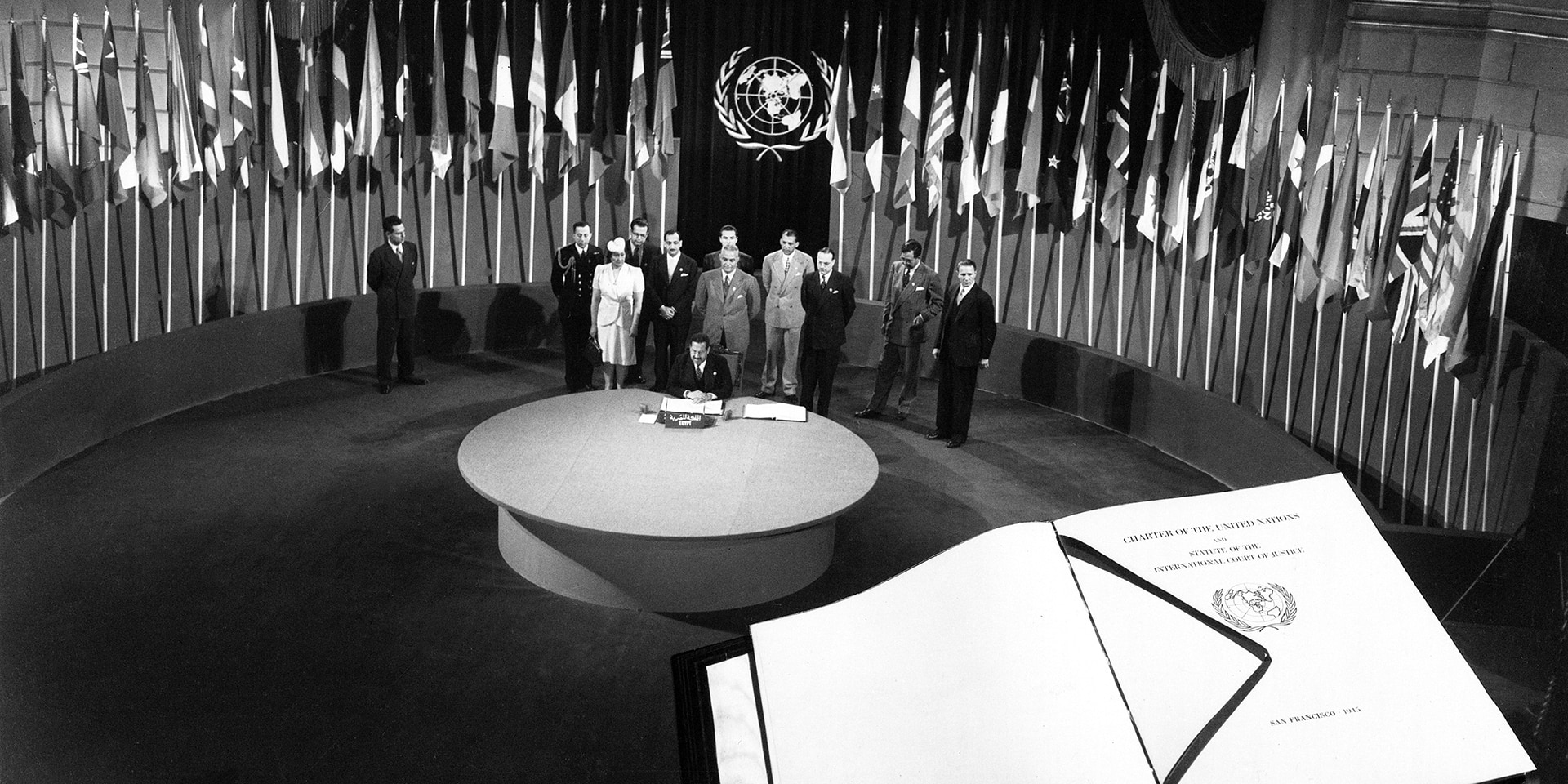Switzerland and the UN: a long history
The Charter of the United Nations celebrates its 75th anniversary. Signed in San Francisco on 26 June 1945 by 50 states, the UN Charter signified the founding of the United Nations and set out its framework. The principles and objectives of this multilateral organisation still broadly correspond to Switzerland's interests and values today.

Egypt signs the UN Charter at the San Francisco Conference. © UN Photo/Historical
The Charter of the United Nations, whose 75th anniversary is being celebrated, laid the foundations for the United Nations. It was created at the initiative of the United States' president, Franklin D. Roosevelt. Before the ending of the Second World War, with his allies of the time he sought to institute a new space for international dialogue. The aim was to redress the failure of the League of Nations, which had been weakened since its inception by the fact that the United States and several other major powers were not members. The main objective was to succeed in preserving future generations from the scourge of war. Although he helped to build the foundations of this new international organisation, President Roosevelt did not live to see his ambitions fulfilled. He died just a few weeks before the San Francisco Conference. Harry Truman was therefore the one to see the project through. After months of talks, it finally took shape on 26 June 1945 at the San Francisco Conference, when 50 states signed the charter. It entered into force on 24 October 1945 after ratification by the majority of the signatories. The United Nations as an international organisation was born.
By virtue of the powers conferred on it by its founding charter and its unique international status, the United Nations today still possesses unique legitimacy with regard to the subjects it addresses, its involvement in decision-making processes and its role in the development of international norms and standards. Virtually all states are UN member states. It thus provides a forum for governments to come together to find areas of agreement and resolve issues. 75 years on, the UN Charter is as relevant today as it has ever been. Indeed, it is a common denominator for the entire world.
Multilateralism and Switzerland
The principles and objectives of the UN Charter largely correspond to Switzerland's interests and values as set out in its constitution. As in 1920 with the League of Nations, Switzerland was the only state to join the United Nations following a popular vote, in 2002. Today Switzerland is an active, innovative UN member state. It is not only known for its efforts in favour of international humanitarian law, human rights, the promotion of peace and sustainable development but also highly appreciated by other states during difficult negotiations. UN membership also enables Switzerland to contribute to the solution of global problems and thus to defend our national interests. This is one of the main motivations behind Switzerland's candidacy for a two-year non-permanent seat on the UN Security Council for the 2023–24 term.
United Nations
The United Nations today consists of 193 states, including Switzerland. While its main headquarters is in New York, the UN has three subsidiary headquarters in Geneva, Vienna and Nairobi. Many important UN agencies and specialised organisations have their headquarters in Geneva, where two-thirds of UN activities are carried out today.
Foreign Policy Strategy 2020–23
The foreign policy strategy sets out the broad outline and priorities of Swiss foreign policy. The primary objective is to work towards a safe and peaceful world where everyone can live safe from terror and misery, have their human rights protected and enjoy economic prosperity. Switzerland's candidacy for a non-permanent seat on the UN Security Council for the 2023–24 term is conducive to achieving this objective.
